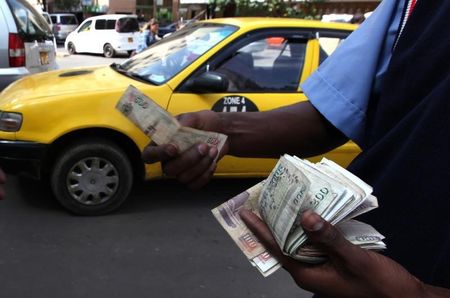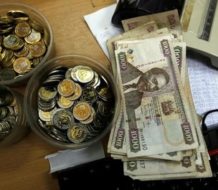NAIROBI (Reuters) – Kenya’s shilling gave up gains made earlier in the day due to importer dollar demand after the central bank sold the U.S. currency, while stocks inched higher.
At close of trade at 1330 GMT, commercial banks quoted the shilling at 102.35/45 to the dollar compared with Thursday’s close of 102.25/35.
“There was slight weakening towards the end of the day. Demand is still there in the market. The shilling has been capped by the central bank (dollar) sales,” a senior trader at one commercial bank said.
“Going into next week we should see more (importer) demand coming in. Government security yields are coming down. That would put pressure on the shilling, and just be supported by the CBK sales.”
The trader said dollar demand would be from sectors such as energy and manufacturing.
Traders said the central bank sold foreign exchange early on Friday, giving the shilling support after yields on the 91-day Treasury bill fell below 10 percent at auction, making it less attractive to offshore investors.
The shilling touched an intraday high of 102.10/30.
The central bank does not normally comment on interventions.
The jump in yields on T-bills of various tenors last month to above 20 percent had attracted offshore dollar inflows, helping reverse some of the recent weakness in the currency.
Dealers said the fall in yields could now start putting more pressure back on the shilling, which in September had almost touched its 2011 all-time low of 106.80.
The currency has been under pressure from a range of factors such global dollar strength and Kenya’s widening trade gap.
On the Nairobi Securities Exchange, the main NSE-20 Share Index was up 1.01 points to close at 3,917.64 points.
On the secondary market, government bonds valued at 2.22 billion shillings were traded, down from 2.58 billion shillings on Thursday.
(Reporting by George Obulutsa and Edmund Blair; editing by Richard Balmforth, Reuters)




